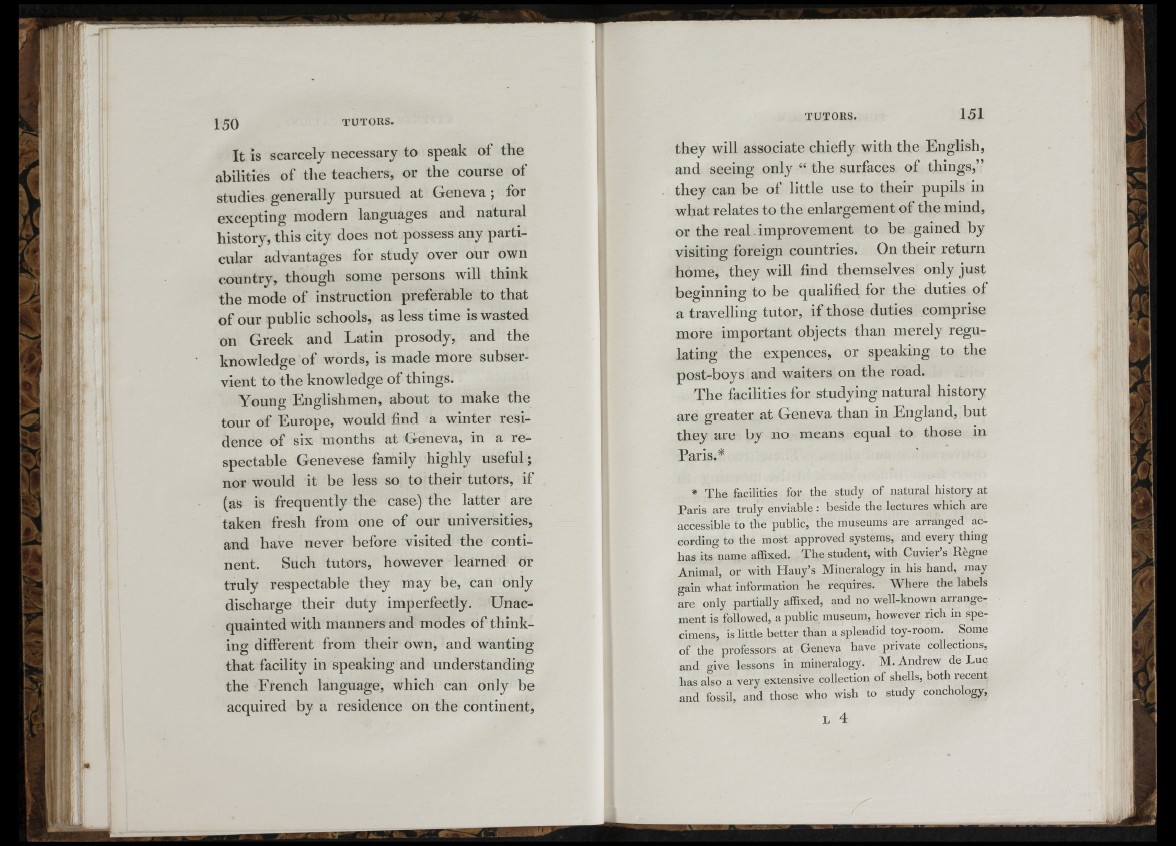
f
ETi-
Ii/,
150 TUTORS.
It is scarcely necessary to speak of the
abilities of the teachers, or the course of
studies generally pursued at Geneva ; for
excepting modern languages and natural
history, this city does not possess any particular
advantages for study over our own
country, though some persons will think
the mode of instruction preferable to that
of our public schools, as less time is wasted
on Greek and Latin prosody, and the
knowledge of words, is made more subservient
to the knowledge of things.
Young Englishmen, about to make the
tour of Europe, would find a winter residence
of six months at Geneva, in a respectable
Genevese family highly useful;
nor would it be less so to their tutors, if
(as is frequently the case) the latter are
taken fresh from one of our universities,
and have never before visited the continent.
Such tutors, however learned or
truly respectable they may be, can only
discharge their duty imperfectly. Unacquainted
with manners and modes of thinking
different from their own, and wanting
that facility in speaking and understanding
the French language, which can only be
acquired by a residence on the continent,
they will associate chiefly with the English,
and seeing only “ the surfaces of things,”
they can be of little use to their pupils in
what relates to the enlargement of the mind,
or the re a l. improvement to be gained by
visiting foreign countries. On their return
home, they will find themselves only just
beginning to be qualified for the duties of
a travelling tutor, if those duties comprise
more important objects than merely regulating
the expences, or speaking to the
post-boys and waiters on the road.
The facilities for studying natural history
are greater at Geneva than in England, but
they are by no means equal to those in
Paris.*
* The facilities for the study of natural history at
Paris are truly enviable : beside the lectures which are
accessible to the public, the museums are arranged according
to tiie most approved systems, and every thing
has its name affixed. The student, with Cuvier’s Règne
Animal, or with Hauy’s Mineralogy in liis hand, may
gain what information he requires. Where the labels
tve only partially affixed, and no well-known arrangement
is followed, a public museum, however rich m specimens,
is little better than a splendid toy-room. Some
of the professors at Geneva have private collections,
and give lessons in mineralogy. M. Andrew de Luc
has also a very extensive collection of shells, both recent
and fossil, and those who wish to study conchology,
L 4